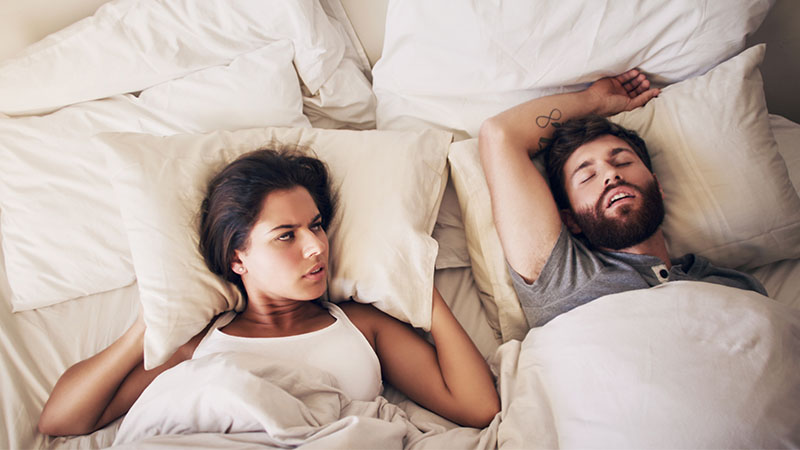Treatments
Sleep Apnea Treatments
Sleep apnea is a serious sleep disorder that needs to be treated. A board-certified sleep medicine specialist can help you select a treatment plan that is right for you. Sleep medicine specialists may collaborate with other sleep team* members, including dentists, psychologists, physician assistants, nurses and technologists.
Your sleep medicine specialist can help you find the best treatment for your sleep apnea from a variety of noninvasive (nasal breathing aids, like sprays and strips) and invasive treatments, including:
Continuous positive airway pressure (CPAP)
Continuous positive airway pressure (CPAP) is a machine that uses a steady stream of air to gently keep your airway open throughout the night while you sleep so that you are able to breathe. You sleep with a mask with a hose that is attached to a machine kept at your bedside. Masks and machines may vary depending on your treatment and comfort needs. CPAP is the frontline treatment for obstructive sleep apnea and is recommended for all cases.
When your specialist recommends CPAP or another breathing machine to treat sleep apnea, Northwestern Medicine Durable Medical Equipment can help you get the equipment that is right for you.
Lifestyle changes
There are a variety of lifestyle changes that you can make to help you reduce your snoring and improve your sleep apnea symptoms. Behavioral changes such as quitting smoking or not drinking alcohol may improve sleep apnea symptoms. Alcohol relaxes your throat muscles, which can cause you to snore or for your airway to collapse. If you have allergies, taking a decongestant before you go to bed may help improve airflow through your nose.
If you have difficult staying with your treatment plan or cannot sleep even with treatment, your physician may recommend cognitive behavioral therapy. A behavioral sleep specialist will help you eliminate the thoughts and behaviors that are preventing you from getting restful sleep or complying with your treatment.
Oral appliances
An oral appliance is a device that fits in your mouth over your teeth while you sleep. It may resemble a sports mouth guard or an orthodontic retainer. The device prevents the airway from collapsing by holding the tongue in position or by sliding your jaw forward so that you can breathe when you are asleep. Some patients prefer sleeping with an oral appliance to a CPAP machine. A dentist trained in dental sleep medicine can fit you with an oral appliance after you are diagnosed with sleep apnea. Oral appliance therapy is recommended for patients with mild to moderate apnea who cannot tolerate CPAP.
Positional therapy
Positional therapy is a behavioral strategy to treat positional sleep apnea. Some people have sleep apnea primarily when sleeping on their back. This is called the supine position. Their breathing returns to normal when they sleep on their side. Positional therapy may involve wearing a special device around your waist or back. It keeps you sleeping in the side position. Another option is a small device that uses vibro-tactile feedback technology. Worn on the back of the neck, it gently vibrates when you start to sleep on your back. Without waking you, the vibration alerts your body to change positions. Positional therapy can be used alone or together with another sleep apnea treatment.
Surgery
There are a variety of surgical options you can elect to have if CPAP or oral appliance therapy does not work for you. The most common options reduce or eliminate the extra tissue in your throat that collapses and blocks your airway during sleep. More complex procedures can adjust your bone structures, including the jaw, nose and facial bones. Weight loss surgery may also be an option. Talk to your sleep medicine specialist about what surgery is right for you.
The Northwestern Medicine Sleep Surgery Clinic can help you determine what options are best for you.
Weight management
In some cases, weight loss can improve or eliminate your sleep apnea symptoms, if you are overweight or obese. Overweight people often have thick necks with extra tissue in the throat that may block their airway. There is no guarantee that losing weight will eliminate your sleep apnea, though it may help. This approach is unlikely to make a difference in patients with narrow nasal passages or airways.



